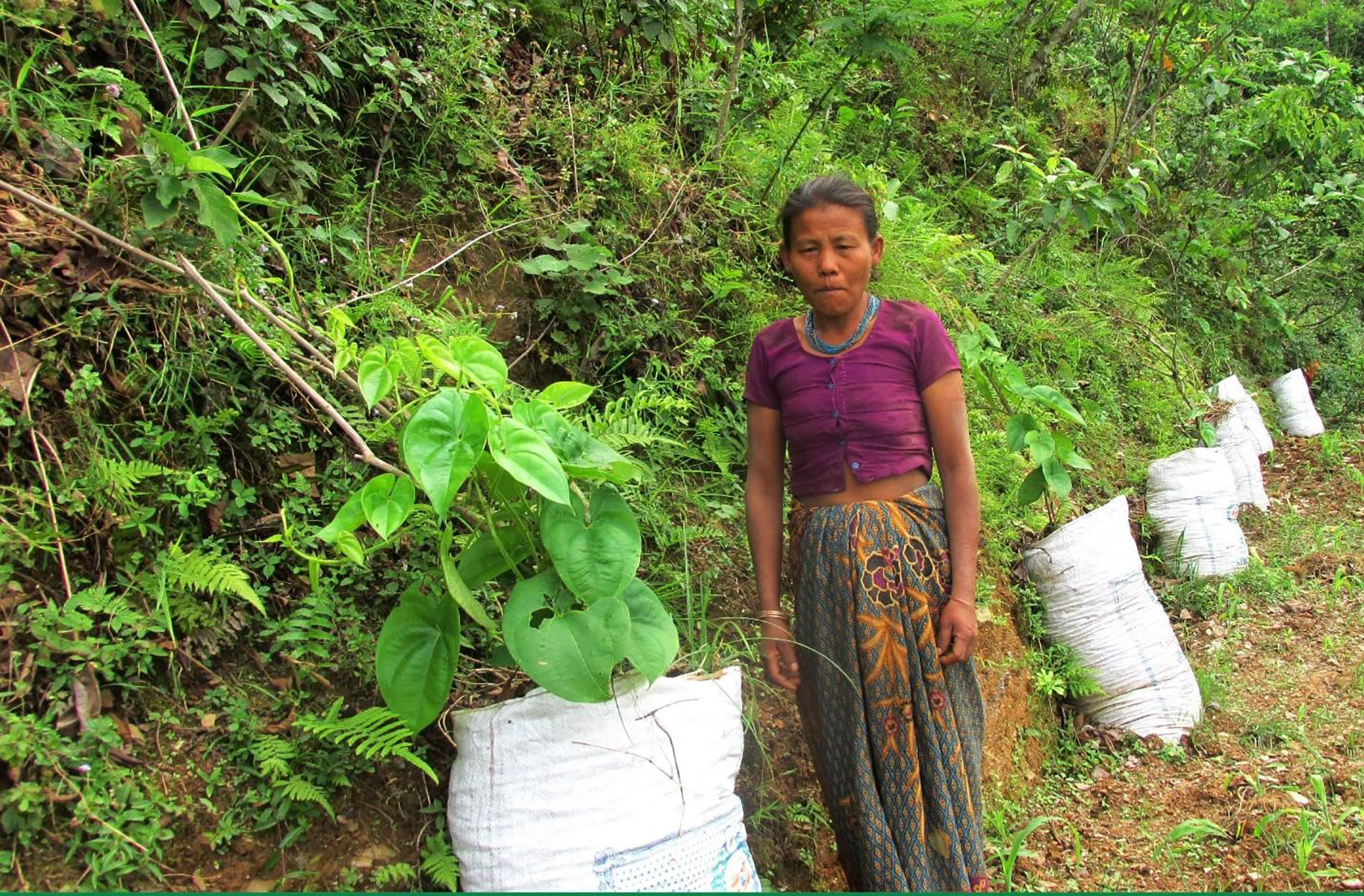By Bharat Bhandari and Shree Prasad Neupane
The Hard Life of the Chepang, Nepal’s Mountain Farmers
The Chepang, an indigenous community of more than 68,000 people, live in geographically inaccessible, marginal land in Central Nepal. They are among the most vulnerable communities, living a semi-nomadic lifestyle and suffering from a low Human Development Index (HDI) according to the Katmandu Environmental Education Project.
The Chepang are highly food insecure with an estimated food self-sufficiency period of less than 3 to 6 months, and studies have found that 37.5% of Chepang households are not able to meet their minimum daily calorie requirements. The Chepang have been practicing permanent agriculture on terraced hillsides in recent years, but evidence unearthed by researchers suggests that they are highly forest-dependent, collecting wild foods, and still practice slash-and-burn agriculture. Poor economic and health conditions hinder their ability to adapt to the changing climate.
The lands used by Chepang communities are not suitable for growing rice, which is the dominant crop for Nepalese farms. In addition, the Chepang are unable to increase their production of maize and millet on their limited terraced upland areas due to climatic stress, marginal soils and topography, and damage from wildlife that live in adjacent forests. Rather, they are highly dependent on neglected and underutilized species (or NUS) of wild food crops associated with the traditions and culture of Chepang communities.
A Potential Solution in Root Vegetables
Some of the NUS crops the Chepang cultivate are underground roots and tubers, particularly yam, taro, sweet potato, cassava, and elephant foot yam. These roots and tubers are excellent sources of carbohydrates, dietary fiber, vitamins and minerals, and proteins with essential amino acids. They can address malnutrition and food security among the Chepang, where 71% of children are considered malnourished.
The agroecological and climatic conditions where Chepang communities reside are very conducive for producing these underground NUS crops. However, their potential to address food and nutrition security and improve income has not been fully harnessed. There is limited research on identifying the best cultivars among the rich local diversity and in developing management practices through participatory on-farm research. We hope to change this.
Local Initiatives for Biodiversity, Research, and Development (LI-BIRD) is a Nepalese nonprofit, nongovernmental organization established in 1995. LI-BIRD has performed preliminary research on taro, yam, and sweet potato crops. Our research revealed that 57% of farmers grow taro and 20% grow yam in their home gardens, mainly for family consumption.
We’ve been promoting taro and sweet potato cultivation for their minerals and micronutrients. In exploratory studies, we’ve identified a highly diverse set of locally adapted yam varieties (13) and taro varieties (17) being cultivated in central and western mid-hill areas of Nepal. Similarly, our Sustainable Agriculture Kits (SAKs) project developed and popularized the cultivation of yam in sacks among smallholder farmers, especially women, in the Kaski and Dhading districts.
However, NUS crops remain neglected from a research standpoint as well. We have yet to systematically document genetic resources or ecological knowledge related to NUS crops, which could improve both livelihoods and conservation. Preserving genetic diversity will help crops adapt to changing environments. Specific research needs include characterizing and evaluating the diversity of NUS crops, enhancing productivity under rain-fed conditions, and testing nutritional and culinary value. There is also a need to improve seed systems. LI-BIRD plans to do all of this work in partnership with smallholder farmers and communities, including women.
We believe that this work will not only improve the food and nutrition security of the Chepang people but also yield lessons that can be scaled up to benefit smallholders on marginal lands throughout Nepal.
Dr. Shree Prasad Neupane is a plant breeder at LI-BIRD. Mr. Bharat Bhandari is LI-BIRD program development director and an expert on agro-biodiversity and sustainable agriculture.
— Grow Further
Photograph credit: A Chepang woman growing taro in sacks. Bharat Bhandari.




